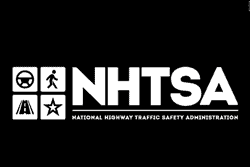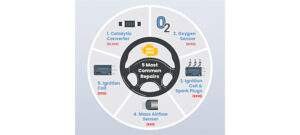Nearly two dozen major automakers on Tuesday were told not to comply with Massachusetts’ Right to Repair law, which was approved by 75% of voters
Washington, D.C.—The National Highway Traffic Safety Administration (NHTSA) told nearly two dozen major automakers on Tuesday not to comply with a Massachusetts vehicle telematics law because it presents significant safety concerns, they stated.
The U.S. safety regulators sent a letter to the automakers that they must comply with a federal vehicle safety law — and not with a state law that requires open remote access to vehicle telematics and vehicle data.
It is yet another road block after numerous court delays and legal jujitsu by the automakers from allowing the law to take affect.
The Massachusetts Right to Repair Law Vehicle Data Access Requirement Initiative was on the ballot in November 2020 and was approved by 75 percent of voters. A previous Right to Repair law had been passed in 2012, but it exempted telematics systems from wireless accessibility by vehicle owners and independent repairers — the 2020 legislation changed that.
The “Yes” vote supported requiring manufacturers that sell vehicles with telematic systems in Massachusetts to equip them with a standardized open data platform. It was to begin with model year 2022 so that vehicle owners and independent repairers could access mechanical data and run diagnostics through a mobile-based application.
But because federal conflicts with and therefore preempts the state law, “NHTSA expects vehicle manufacturers to fully comply with their Federal safety obligations,” stated NHTSA in its letter, adding that a malicious actor “could utilize such open access to remotely command vehicles to operate dangerously, including attacking multiple vehicles concurrently.”

The letter continued, “Open access to vehicle manufacturers’ telematics offerings with the ability to remotely send commands allows for manipulation of systems on a vehicle, including safety-critical functions such as steering, acceleration, or braking.”
Lisa Foshee, senior vice president, Government Affairs and General Counsel for Auto Care Association, told Aftermarket Matters: “Vehicle safety is of utmost concern and priority to the automotive aftermarket. The letter submitted by NHTSA unfortunately does not acknowledge the evidence and testimony presented at the trial that demonstrated the viability and security of an open access platform throughout the court case.”
Foshee added, “We continue to welcome the opportunity to discuss with NHTSA how a safe, secure, standardized solution for independent vehicle maintenance and repair can be implemented collaboratively across the transportation ecosystem.”
The passage of the Massachusetts legislation is connected to other types of Right to Repair laws, such as Apple recently allowing for a more of an aftermarket for its devices. However, the Alliance for Automotive Innovation, which is a group representing General Motors, Toyota Motors, Volkswagen and other major automakers, filed suit in Massachusetts the same month after Right to Repair passed in 2020.
The suit has argued that the law “makes personal driving data available to third parties with no safeguards to protect core vehicle functions and consumers’ private information or physical safety.” The Alliance also maintained that Right to Repair conflicted with the Constitution and Federal law.









Comments are closed.